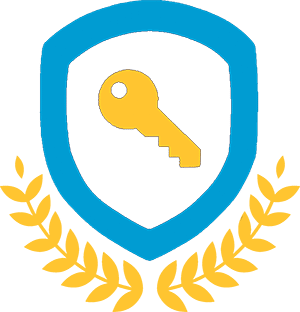Free Copy of Earning Freedom
ELIZABETH HOLMES’ SILICON VALLEY FRAUD TRIAL (UPDATE #6)
Prosecutors presented evidence to show that Holmes was not naive and was fully aware of Theranos’ technology’s significant problems
INTRODUCTION
In the ongoing Elizabeth Holmes fraud trial, prosecutors continue to marshall their supporting evidence for the jury.
They called witnesses and evidence to show that Holmes and others were fully aware of the Theranos blood-testing technology’s significant problems.
Holmes has pleaded not guilty to 10 counts of wire fraud and two counts of conspiracy to commit wire fraud. Her lawyers describe her as guilty of little more than running a failed business, not fraud.
DISCUSSION
A VETERAN SENIOR CHEMIST
Prosecutors called Surekha Gangakhedkar to testify that Holmes knew that the Walgreens rollout was premature. A senior scientist who worked at Theranos for eight years and reported directly to Holmes, Gangakhedkar told the jury that Theranos rushed the Walgreens effort in 2013 when the devices were not ready to be used on patients.
Gangakhedkar testified that she returned to work from vacation in August 2013 to discover that Theranos was preparing to put its blood-testing devices in Walgreens amid serious “reliability issues” that “were not fully resolved.” She specifically said that Holmes was aware of the issues and that Holmes pressured staff to make the Walgreens rollout happen.
Gangakhedkar specifically noted problems with Theranos’s lab tests because its signature device to capture a finger-prick blood sample was not capturing enough blood. For that reason, Theranos’ blood-sample readings would not return results on specific thyroid-stimulating hormone tests used to detect pregnancy and other issues.
According to prosecutors, Gangakhedkar’s testimony shows that Holmes knew of the significant problems at Theranos and deliberately intended to defraud patients and investors.
THE TEXT MESSAGES
To further show that Holmes was in charge of Theranos and knew the technology did not work as promised, prosecutors introduced dozens of text messages between Holmes and co-defendant Sunny Balwani (who will have a separate criminal trial in January 2022). Balwani was the Chief Operating Officer at the time.
Although a government witness read the text messages to the jury without providing any context, most of them show instances when Balwani made Holmes aware of specific problems at Theranos. In her defense, Holmes’ legal team indicates that she was not aware of specific issues. As to the very significant lab issues, defense lawyers allege that Holmes had delegated that responsibility.
Specifically, the jury heard messages from Balwani to Holmes in 2013 detailing all the departments Balwani thought needed better management. A year later, in November 2014, he texted Holmes:
“Need to focus on ops. Getting hurt in market.”
That was followed by: “Customer service seems to be terrible. Everyone complaining.”
“Yes,” Holmes replied. “We have to own this.”
Also in November 2014, while visiting one of Theranos’s labs, Balwani sent a message to Holmes saying:
“We built software to remove human error and human judgment. All-day I saw these people use their judgments to work around our processes.”
In April 2015, Balwani sent Holmes messages saying he was worried she was becoming overexposed “without solid substance which is lacking right now.” Balwani also wrote: “It is most maddening there is no focus in any chem teams and no product coming out.”
A FORMER DEFENSE SECRETARY
Prosecutors called former Defense Secretary James Mattis, a Theranos Board member, and ardent Holmes supporter, as a witness at trial. The upshot of Mattis’ testimony is that he trusted Holmes, who was firmly in charge of Theranos.
The retired four-star general described his first meeting with Holmes around 2011 when they discussed the possibility of deploying Theranos’ technology in the military. After leaving active military service, Mattis joined Theranos’ Board serving from 2013 to 2016.
In an email Mattis sent to Holmes in October 2011, he stated:
“I’m trying to find a way to employ your device on a swift ‘pilot project’ or ‘proof of principle’ to expedite its entry to our forces.”
Evidently, Mattis initially believed in the promise of Theranos’ technology. Still, he told the jury that he was hesitant to join the Board when invited.
“I cautioned her I was not a medical person,” Mattis said. But Holmes reassured him that she wanted board members with a broad base of experience and backgrounds. Holmes told Mattis that she valued his expertise in building elite teams, creating an excellent corporate culture, and getting people to make commitments.
Mattis joined the Board and also made a personal monetary investment to “have skin in the game.” Mattis told jurors that he invested somewhere close to $85,000 in the company, a significant sum for someone who worked in government for 40 years. When Theranos imploded, Mattis’ lost his investment.
In his early interactions with Holmes, she struck him as “sharp, articulate, committed,” Mattis said. He acknowledged that he was impressed by her, but “that didn’t take the place for having the device prove itself.”
He described believing so much in the promise of the company’s mission to test for a range of conditions with just a few drops of blood he was willing to invest personally. But he testified that at a certain point, following growing scrutiny of the company’s testing capabilities, “I didn’t know what to believe about Theranos anymore.”
“I couldn’t see why we were being surprised by such fundamental issues,” Mattis told jurors. Mattis discussed how he felt blindsided to learn that Theranos’ proprietary blood-testing device did not work as Holmes had claimed and that the company was using third-party equipment to test blood samples.
During Mattis’ cross-examination, a lawyer for Holmes tried to show that Theranos’ Board was a group of accomplished people who knew how to ask questions about their concerns if they had any. Mattis agreed.
Members on Theranos’ Board, he said, were willing to express their opinions and be candid with each other. “It was an eclectic group” of proven leaders in their fields, Mattis said. The Board members were highly successful people, like former Secretaries of State George Shultz and Henry Kissinger, and former Wells Fargo & Co. Chief Executive Officer Richard Kovacevich.
Mattis said he told Holmes when she invited him to join the Board that he didn’t need the payment for being on the Board but that she insisted. He received an annual salary of around $150,000.
NEXT STEPS
Prosecutors may call to the stand additional well-known figures from Theranos’ Board of Directors to testify. In addition, other former employees working in Theranos’ labs will testify.
Follow our Prison Professors blog for additional updates on the Elizabeth Holmes Silicon Valley fraud trial.

